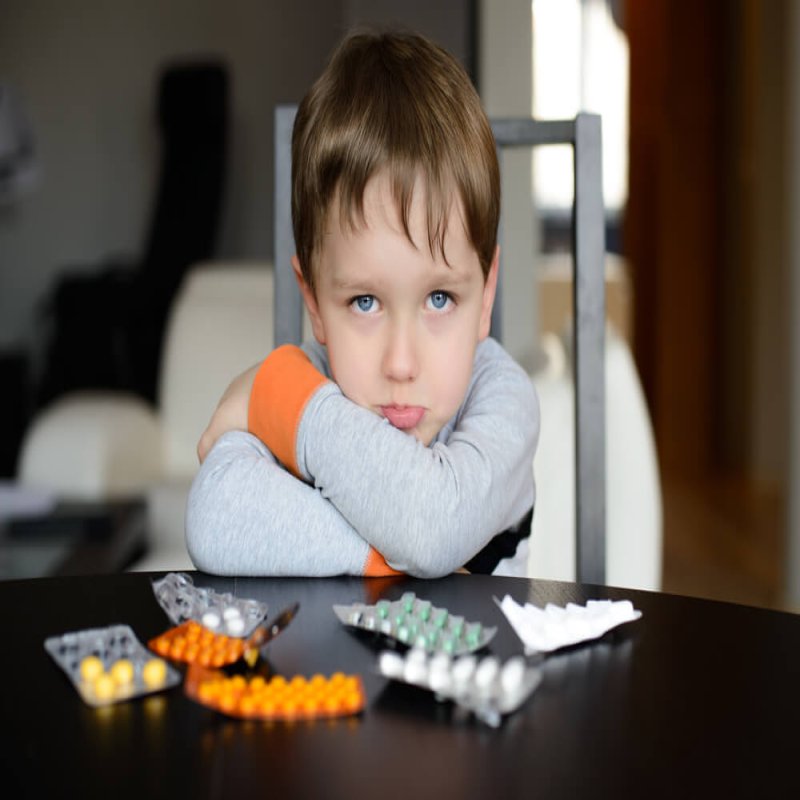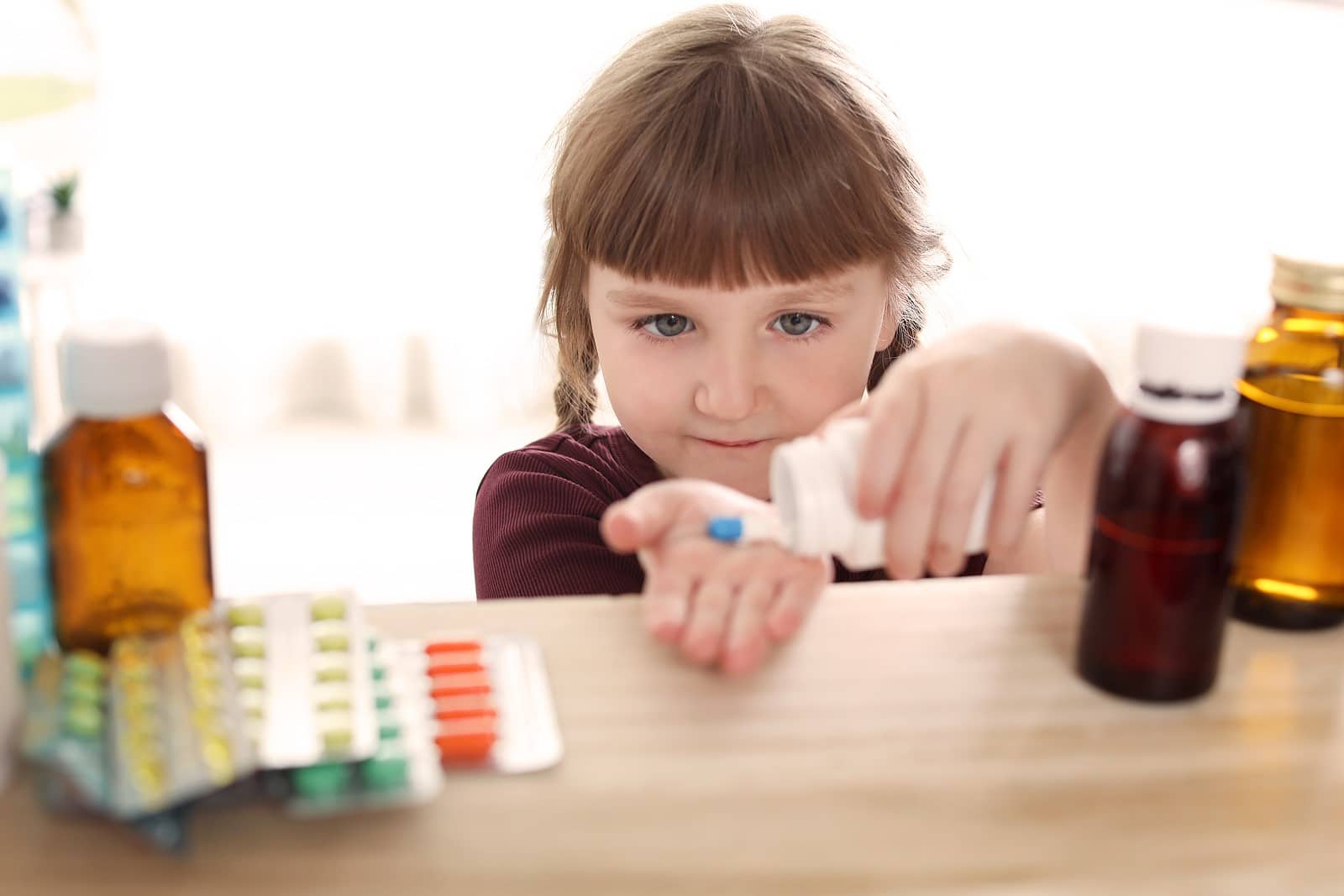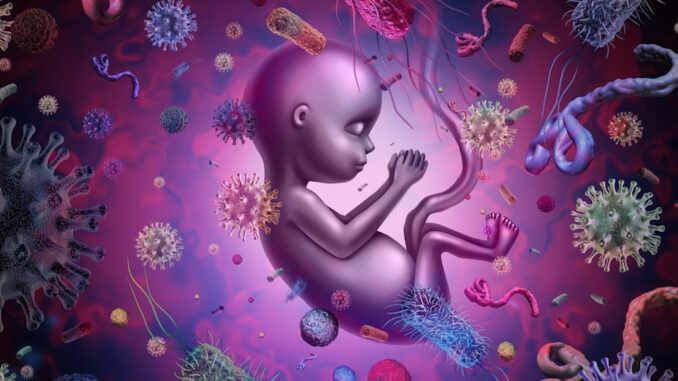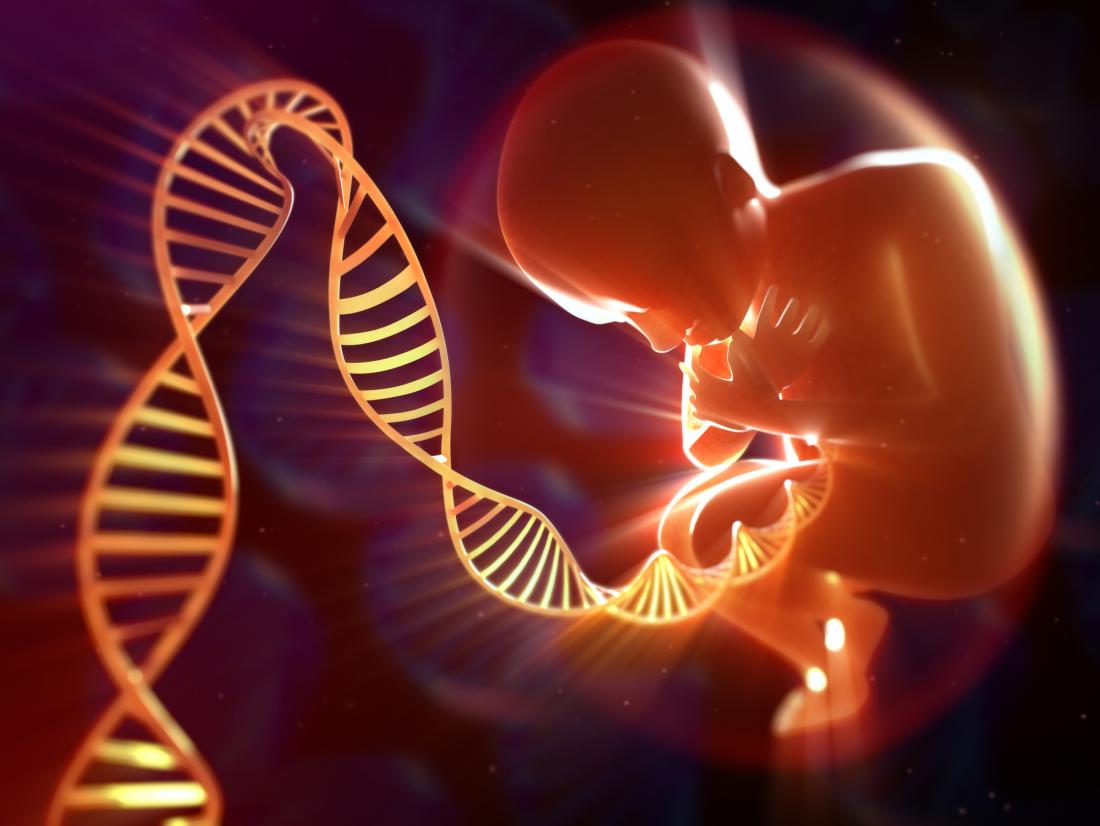
According to research, having antibiotics at an early stage in life can hamper a child’s brain development. It can alter areas in the brain that are responsible for cognitive and emotional functions.
How many times do we give antibiotics to children whenever they get sick? Almost every time. Whenever a child gets sick, parents give them antibiotics without realizing that these medicines can harm the child’s brain development in the long term. Now, many might wonder: if these antibiotics are effective and life-saving for treating infections, how can they be so harmful? Before answering this question, it is important to understand more about antibiotics.

Efficiency of Antibiotics
Antibiotics are medicines that fight bacterial infections in people and animals. It kills bacteria or stops them from growing and multiplying in our bodies. You can take antibiotics in several ways:
- Orally (by mouth): via pills, capsules, or liquids.
- Topically: via cream, spray, or ointment that you put on your skin. It can also be an eye ointment, eye drops, or ear drops.
- Intravenously (I.V): this is usually in cases of more serious infections.

Of course, bacteria are not the only microbes that can be harmful to us. Fungi and viruses are also infectious. Today, antibiotics are one of the most common classes of drugs used in medicine and make many of the complex surgeries possible that have almost become a routine around the world. However, antibiotics do not cure everything, and the unnecessary use of antibiotics can even be harmful.
Harmful Effects of Antibiotics
Antibiotics should be used cautiously because unnecessary consumption can prove to be fatal, especially for children. Unnecessary antibiotic administration to children can have potential side effects, including diarrhea, vomiting, rashes, and allergic reactions. The overuse of antibiotics also increases the risk of antibiotic resistance. In antibiotic resistance, several commonly used antibiotics become ineffective against bacterial infections, making it difficult, or even impossible, to treat them.

Penicillin and related medicines, like ampicillin and amoxicillin, are the most used antibiotics in children worldwide. According to a study, penicillin not only affects the microbiome—the trillions of beneficial microorganisms that live in and on our bodies—but also gene expression, which allows cells to respond to their changing environment in key areas of the brain. The study compared mice that were given penicillin immediately after birth with mice that were not exposed to penicillin. It was observed that mice exposed to penicillin experienced substantial changes in their intestinal microbiota and had altered gene expression in the frontal cortex (the area in the brain responsible for memory development) and the amygdala, which is involved with the processing of emotions.
You must be wondering what microbiome and gene expression are and their connection with brain development. Let’s see.
Role of Bacteria
We have vast numbers of bacteria in our gut, as well as viruses, fungi, and other organisms. This microbial community is collectively known as the microbiome and is essential for normal health and development. An infant’s first major contact with bacteria and other microbes occurs at birth. Babies born naturally acquire their initial microbiome from the birth canal and gut. Babies delivered by cesarean section are more likely to contract it from their mother’s skin and the hospital. So, when a mother takes antibiotics during pregnancy, it can affect her body's microbiome and the microbial profile of her baby. The baby’s early microbiome, acquired from the mother at delivery, “educates” the infant’s developing immune system in the first weeks and months of life.

In a Danish study, a mother’s exposure to antibiotics during pregnancy was associated with an increased risk of her child developing a severe infection. The infection affects the infant’s overall development while growing up, more specifically, their brain development. Antibiotics kill off not only the bacteria causing the infection but also other beneficial bacteria present in the microbiome. Our microbiome is made up of a large number of different strains and species of bacteria. However, when the quantity and proportion of these friendly bacteria are reduced, the harmful strains and pathogens are allowed to grow unchecked, causing an imbalance that can lead to dysbiosis. When your body is in dysbiosis, your health may decline, from mild effects like cramps, diarrhea, and constipation to more serious chronic conditions.
Dysbiosis in our gut is often due to one or a combination of the following:
- Antibiotics and antibacterial medications
- Changes in our diet, such as the increased consumption of sugars, refined starch, and processed foods and food additives such as preservatives, emulsifiers, and artificial sweeteners
- Traces of harmful chemicals and toxins in our foods, such as pesticides on unwashed fruit, vegetables, and cereals
- Excessive alcohol consumption
- Poor dental hygiene, which allows bacteria to grow out of balance in your mouth
- High levels of stress, anxiety, or depression affect the immune system
Gene Expression
Genes do more than determine our physical attributes; they are at the center of everything that makes us human. Genes are responsible for producing the proteins that run everything in our bodies. For the most part, every cell in our body contains the same genes, but some are active while others are not. When genes are active, they are capable of producing proteins. This process is called gene expression. When genes are inactive, they are silent or inaccessible for protein production. These genes influence the development and function of the brain and ultimately control how we move, think, feel, and behave.

Our gut health is related to our brain or mental development; this relation is known as the gut-brain axis. Gut health is essential to mental health because it affects our mood, emotions, ability to handle stress, and symptoms of conditions such as Autism Spectrum Disorder (ASD). The gut-brain axis is a two-way street, and both of these ‘roads’ are connected. When one road is in bad condition, it affects the other road as well. If your gut is unhealthy, it will alter genes in the brain, leading to neurodevelopmental disorders.
Antibiotics will have detrimental side effects, especially if you take them for a prolonged period. Thus, there’s a strong possibility that the use of an antibiotic will affect the indeterminate function of a gene’s alleles. Alleles are alternate forms of a gene at a given chromosomal locus. Despite their unknown function, alleles don’t effect a change in the gene’s DNA sequence. Antibiotics can and probably will affect the various alleles of a given gene in an unpredictable and harmful way.
Therefore, pregnant women should avoid antibiotics as much as possible or have them as prescribed by doctors. Also, the use of antibiotics should be prevented in children just because they are sick unless it is required. Always try home remedies or go for other medical fields like homeopathy or Ayurveda, which are natural and also have negligible side effects.
Conclusion
We all know how important neurodevelopment, or brain development, is in the early stages of life. Healthy child growth is crucial to enjoying long-term health benefits, which is why parents take care of their children's diet, physical activity, and overall well-being. So they should also think about mental development and be cautious before giving any medicines.


.png)


